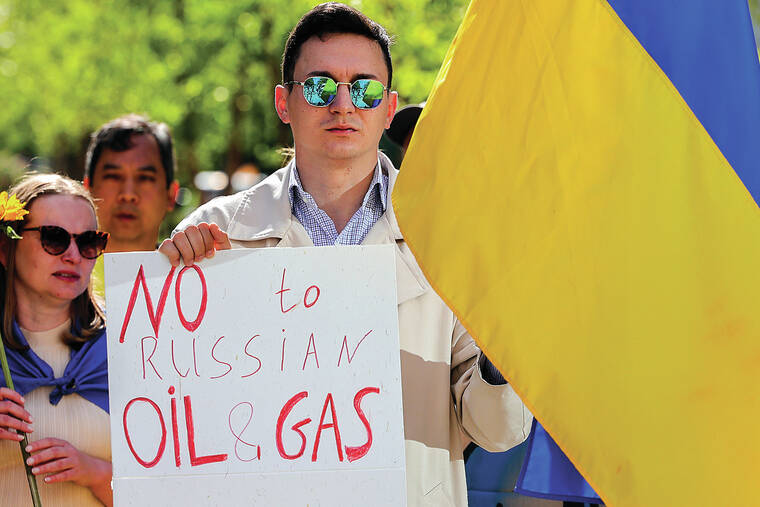EU leaders agree to ban 90% of Russian oil by year-end
BRUSSELS — European Union leaders agreed Monday to embargo most Russian oil imports into the bloc by year-end as part of new sanctions on Moscow worked out at a summit focused on helping Ukraine with a long-delayed package of new financial support.
The embargo covers Russian oil brought in by sea, allowing a temporary exemption for imports delivered by pipeline, a move that was crucial to bring landlocked Hungary on board a decision that required consensus.
ADVERTISING
EU Council President Charles Michel said the agreement covers more than two-thirds of oil imports from Russia. Ursula Von der Leyen, the head of the EU’s executive branch, said the punitive move will “effectively cut around 90% of oil imports from Russia to the EU by the end of the year.”
Michel said leaders also agreed to provide Ukraine with a 9 billion-euro ($9.7 billion) tranche of assistance to support the war-torn country’s economy. It was unclear whether the money would come in grants or loans.
Mikhail Ulyanov, Russia’s permanent representative to international organizations in Vienna, responded to the EU’s decision on Twitter, saying: “As she rightly said yesterday, Russia will find other importers.”
The new package of sanctions will also include an asset freeze and travel ban on individuals, while Russia’s biggest bank, Sberbank, will be excluded from SWIFT, the major global system for financial transfers from which the EU previously banned several smaller Russian banks. Three big Russian state-owned broadcasters will be prevented from distributing their content in the EU.
“We want to stop Russia’s war machine,” Michel said, lauding what he called a “remarkable achievement.”
“More than ever it’s important to show that we are able to be strong, that we are able to be firm, that we are able to be tough,” he added.
Michel said the new sanctions, which needed the support of all 27 member countries, will be legally endorsed by Wednesday.
The EU had already imposed five previous rounds of sanctions on Russia over its war. It has targeted more than 1,000 people individually, including Russian President Vladimir Putin and top government officials.
But the sixth package of measures announced May 4 had been held up by concerns over oil supplies.
The impasse embarrassed the bloc, which was forced to scale down its ambitions to break Hungary’s resistance.


